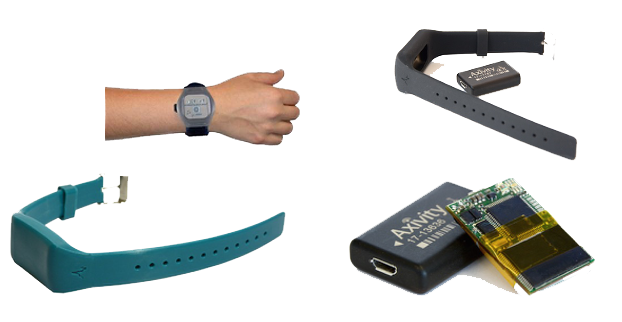Feasibility studies
Our feasibility study is comprised of two sub-studies, which will run concurrently. The data collection will be carried out at different times of the year (during winter 2020 and during summer 2021) and at different school latitudes in Scotland. Our aim is to assess whether the below approach to data collection on sleep and mental health in schools is feasible. The results of this work will inform larger-scale research on sleep and mental health data in adolescents.

Objective Sleep Data from Actigraphs
Both sub-studies in our feasibility study will collect objective sleep data using a wrist-worn actigraph, over a period of three weeks. This wearable technology measures movements and sleep-wake cycles through an internal accelerometer.

Sub-Study 1: Assessing the relationship between sleep and mental health in schoolchildren across different seasons and latitudes
This study will combine the objective sleep data collected via actigraphs with prospective mental health data. To gather this mental health data, we will use an Ecological Momentary Assessment (EMA) mobile phone application to gather self-report data from participants on their daily mood, anxiety, and subjective reports of sleep.

Study 2: Assessing sleep, cognitive functioning, wellbeing, and school engagement in adolescent pupils
Both sub-studies in our feasibility study will collect objective sleep data using a wrist-worn actigraaThis study will evaluate the feasibility of measuring cognitive functioning and school experience at scale. At the beginning and end of the three-week actigraph data collection period, pupils will complete an online questionnaire in class. This will assess cognitive function, wellbeing, and school engagement. Each pupil will complete 6 brief cognitive assessments online. We are particularly interested in tests of reaction time/processing speed, attention/working memory, learning and memory, and executive function/reasoning. ph, over a period of three weeks. This wearable technology measures movements and sleep-wake cycles through an internal accelerometer.

Post-Study Participatory Design Workshops
Following the feasibility study, we will conduct Participatory Design sessions with a sub-group of volunteer young people, to determine their opinions on the study, their acceptance of wearing the actigraphs, and their ideas on how we could expand and improve on the study. We will do this through a series of techniques such as group discussion, drawing, crafting, and prototyping. This is an important opportunity to build an understanding of how young people think that technology could be adapted to better support the collection of data about sleep and mental health in schools.
Who can take part?
200 young people, aged 12-18 from ~10 schools
3 weeks in winter 2020, 3 weeks in summer 2021
Schools from across Scotland
Sleep Champions/ Volunteers for Co-Design
SCRAMS research study Privacy Notice